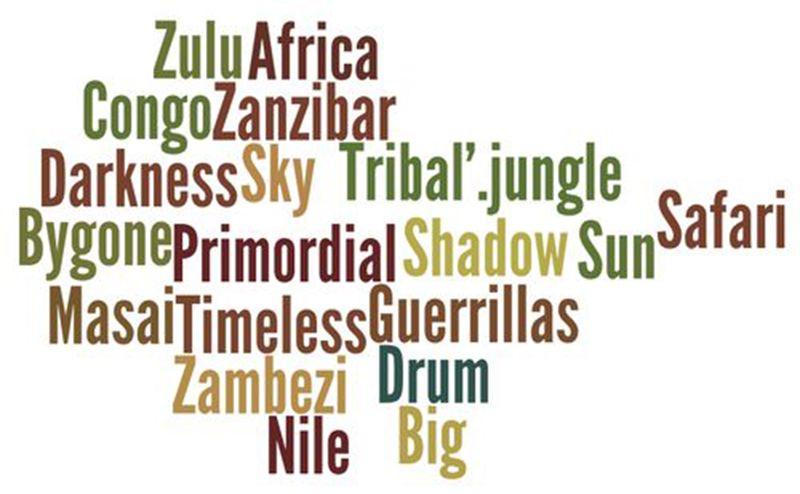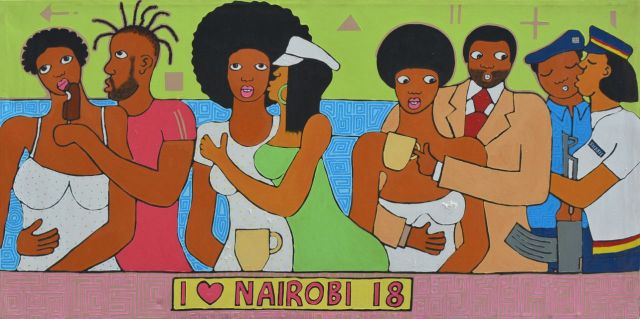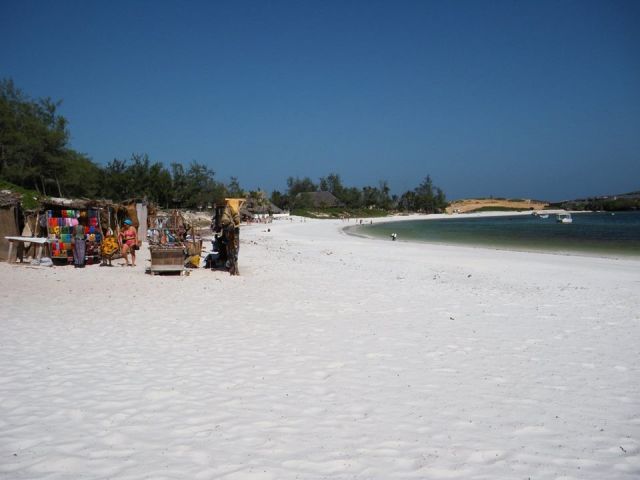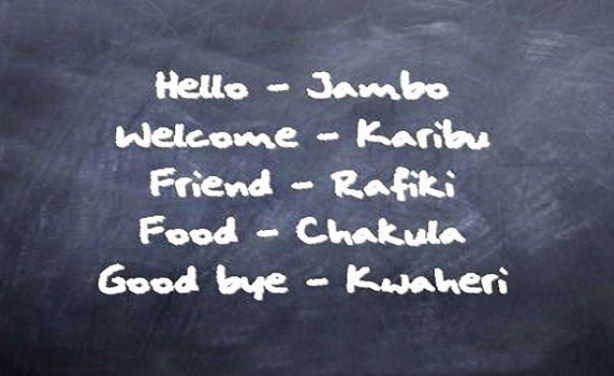
STORIES
26-07-2020 di redazione

Let's pick up a passage we translated, taken from an amusing, ironic and by now unobtainable booklet by the Kenyan journalist and writer Binyavanga Wainaina, who unfortunately left us in May last year, who makes fun of the commonplaces of Western writers who are struggling with the African subject.
How to talk about Africa
In the title, always use the words "Africa", "black", "safari".
In the subtitle, insert terms such as "Zanzibar", "masai", "zulu", "zambezi", "Congo", "Nile", "big", "sky", "shadow", "drums", "sun" or "ancient splendor".
Other useful words are "guerrilla", "timeless", "primordial" and "tribal".
Never put on the cover (but not even inside) a picture of a well-dressed and healthy African, unless that African has won a Nobel Prize.
Use, rather, pictures of shirtless people with highlighted ribs.
If you have to portray an African, make sure he is wearing a typical Masai, Zulu or dogon suit.
In the text, describe Africa as a warm, dusty country with rolling prairies, animals and tiny, undernourished human beings.
Or hot and humid, with a population of small stature eating monkeys.
Don't get lost in accurate descriptions, Africa is big: fifty-four nations and nine hundred million people too busy starving, dying, fighting or emigrating to have time to read your book.
The continent is full of deserts, jungles, highlands, savannahs and many other landscapes, but this does not interest your readers.
Make romantic, evocative descriptions without overdoing the details.
Remember to say that Africans have music and rhythm in their blood, and that they eat things that no other man can eat.
Never mention rice, meat and wheat: you prefer, among the typical dishes of the black continent, monkey brains, goats, snakes, worms, larvae and all sorts of game.
And also remember to add that you have been able to eat these foods and even that you have learned to enjoy them.
Forbidden subjects: scenes from everyday life, love between Africans, references to writers or intellectuals, references to school children who do not suffer from framboesia, Ebola, malaria or genital mutilation.
In the book you adopt a soft, winking tone of voice with the reader and a sad, "it was exactly what I expected" tone.
Clarify at once that your progressiveness is spotless and say how much you love Africa and how you feel in harmony with that land and indeed, you cannot live far from it. Africa is the only continent you can love: take advantage of it!
If you are a man, describe the torrid virgin forests.
If you are a woman, talk about Africa as a man in a multi-pocket vest who disappears into the sunset.
Africa is to be pitied, adored or dominated.
But whichever point of view you choose, make sure you give the impression that Africa would be doomed without your intervention.
Your characters can be naked warriors, faithful servants, soothsayers, shamans and wise old men living in beautiful hermitages.
Or even corrupt politicians, incapable tour guides and polygamists or prostitutes you have frequented.
The faithful servant must have the attitude of a seven-year-old boy, in need of a guide, who fears snakes and constantly drags you into dark plots. The wise old man will always be descended from a noble tribe, his eyes will be wide open, and he will be close to the heart of Mother Earth.
Today's African is a fat man who works (and steals) at the visa office and denies work permits to Western experts, who really care about the good of the continent. He is an enemy of development, which hinders good and competent Africans who would like to create non-governmental organizations and protected reserves. Or he is an intellectual who studied at Oxford and has become a serial killer of double-breasted politicians: he is a cannibal who likes branded champagne and his mother is a rich sorceress and healer.
Don't forget to include in the book the undernourished African woman who wanders half-naked in the refugee camp waiting for the charity of the West: her children have flies in their eyes and round navels and she has empty, drooping breasts.
She must seem needy and have neither a past nor a history (any digression would dampen the dramatic tension).
She must complain but she must not spend a word for herself, except references to her suffering.
Insert also a motherly and solicitous female figure, with a loud laugh, who takes care of you and your good and simply call her Mama.
Her children will all be delinquents.
All these characters should surround your hero, helping him to look better.
He's the one who can educate them, wash them, feed them. He takes care of a lot of children and has seen death.
Your hero is you (if it is a reportage), or a generous aristocrat (or VIP) foreigner full of tragic charm, who is now dedicated to animal rights (if your book is fiction).
Among the bad western characters there must be the sons of the conservative ministers in government, the Afrikaners, the World Bank employees.
When you talk about the exploitation of foreigners, you mention Chinese and Indian traders and, in general, you blame the West for the situation on the African continent.
But try not to get too specific.
Quick and rough portraits are all very well.
Avoid Africans laughing, or educating their children, and do not portray them in frivolous circumstances.
Have them say something interesting about the European or American commitment to the continent.
African characters should be picturesque, exotic, larger than life, but empty inside, with no contrasts, conflicts and choices in their lives, no depths or desires that confuse ideas.
Describe in detail the bare breasts, the mutilated genitals and the large ones.
And the corpses.
Or, better still, the naked corpses.
And especially the rotting naked corpses.
Remember: any work in which African people look miserable and repulsive will be seen as "real" Africa, and that's what you want on the cover of your book. Don't have too many scruples about it: you are trying to help the continent by asking Westerners for help.
The greatest taboo when writing about Africa is to describe the suffering and death of a white man.
Even animals have to be portrayed in a complex and articulate way.
They speak and have names, ambitions and desires.
They are also good parents: "Do you see how lions educate their children?", elephants are altruistic, females are true matriarchs and males are dignified kaputz. And the same for gorillas: never say anything negative about elephants or gorillas.
Always defend them, even when they invade cultivated land, destroy crops and kill men.
Describe the big cats emphatically.
Hyenas, on the other hand, are a permitted target and must have a vague Middle Eastern accent.
Any small African living in the jungle or desert should always be described in a good mood.
After the VIP activists and volunteers, the most important people in Africa are those who fight for the protection of the environment.
Do not offend them. You need them to invite you to their ten thousand square meter reserves, because it is the only way to meet and interview VIP activists.
Put on the cover the image of one (or one) who is fighting for the environment, with the intrepid air and inspired look, works great in the bookstore and will make you sell a lot.
Who can be considered like that? Well, any white person, tanned, with khaki clothes, who at least once took care of an antelope or owned a ranch is one (or one) who is trying to protect Africa's rich natural heritage.
When you interview her, do not ask questions about money; do not ask how much money she gets.
Above all, avoid any reference to the pay she gives her workers.
If you forget to mention the African light, your readers will be amazed.
And the sunsets. The African sunset is a must.
It's always big and red and the sky is vast.
The huge open spaces and the animals to hunt are the focal points.
Africa is the land of vast open spaces.
When you describe the flora and fauna, remember to say that Africa is overpopulated.
On the other hand, when your protagonist is in the desert or in the jungle among the natives, it is good to warn the reader that Africa has been depopulated by AIDS and war.
You will also need a nightclub called Tropicana where mercenaries, evil indigenous parvenu, prostitutes, guerrillas and exiles meet.
In any case, close your book with Nelson Mandela saying something about rainbows and hopes for rebirth.
Because you care about Africa.
PEOPLE
di redazione

His name is Michael Soi, he is 49 years old and for over twenty years has been considered one of Kenya's most innovative, brilliant and irreverent artists.
A painter, illustrator and creative pop-art artist with a strong satirical streak, Soi...
STORIES
di redazione

It is called Nderi Village, but it could be read "Cinecittà" or, if you prefer, "Kollywood", where the K stands for Kenya, like the Nigerian Nollywood.
The village on the outskirts of Nairobi, not far from the suburb of...
PLACES
di redazione

Watamu may seem at first glance to be one of the many villages on the African coast, consisting simply of a small cluster of hotels, a strip of private houses on the beach, a cluttered and poor village shaded by...
CULTURE
di redazione

The Kiswahili language, originally from the coast of the same name that goes from the north of Mozambique to the Horn of Africa and later adopted also by the rest of East Africa, particularly by...
AFRICAN WORDS
di redazione

We have selected ten sentences that express a feeling dedicated to Africa, understood more as a spiritual and moral, historical and social entity than as a geographical reality. The selected words are all taken from published...

Karen Dinesen Blixen lived in Kenya from 1914 to 1931.
She came there from the icy Denmark with her husband, baron Von Blixen, to buy a plot on the hills Ngong, near Nairobi, and build then a farm.
Rather being...